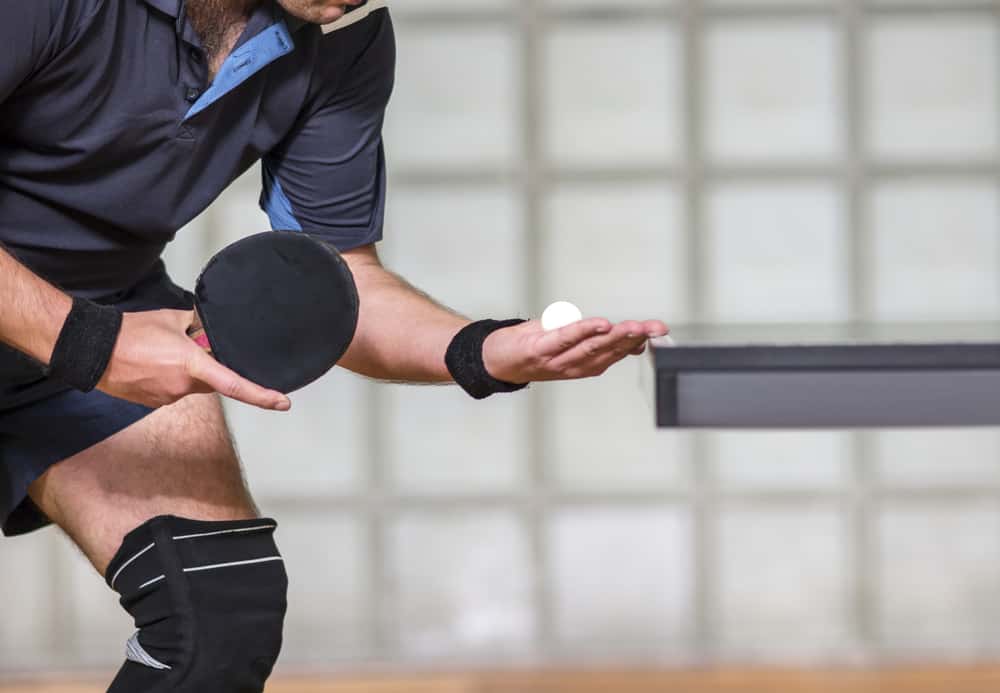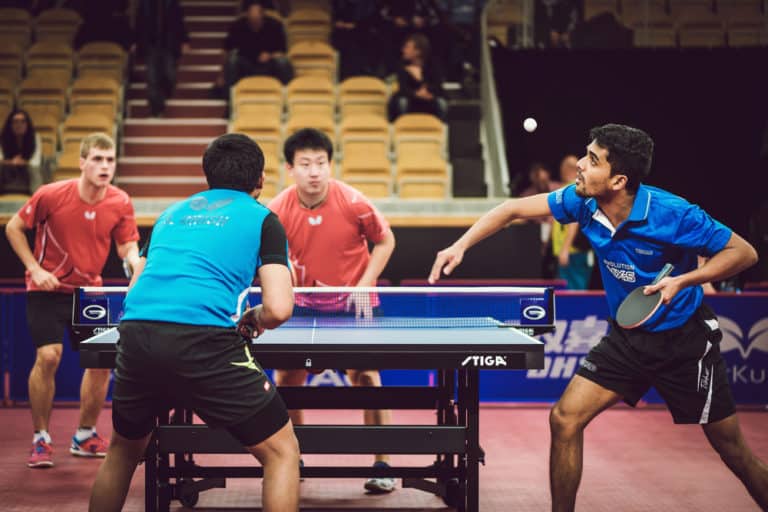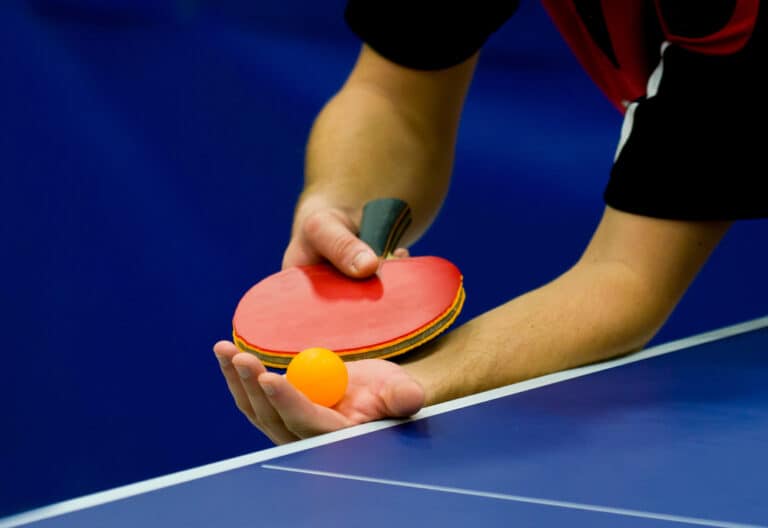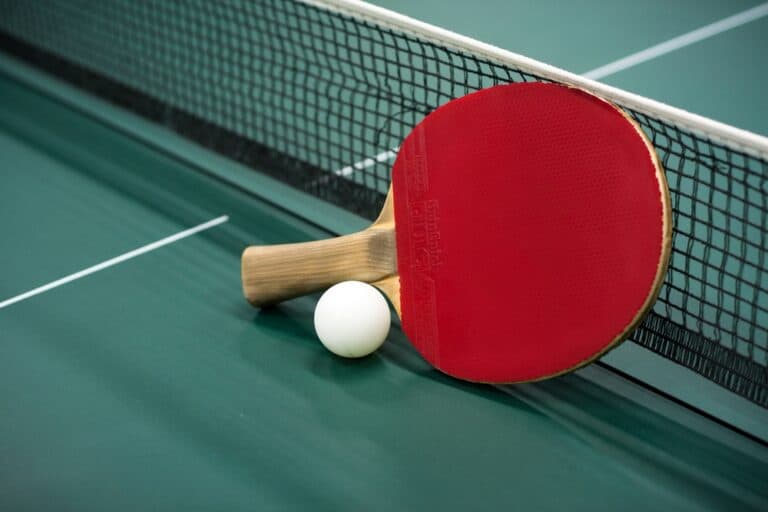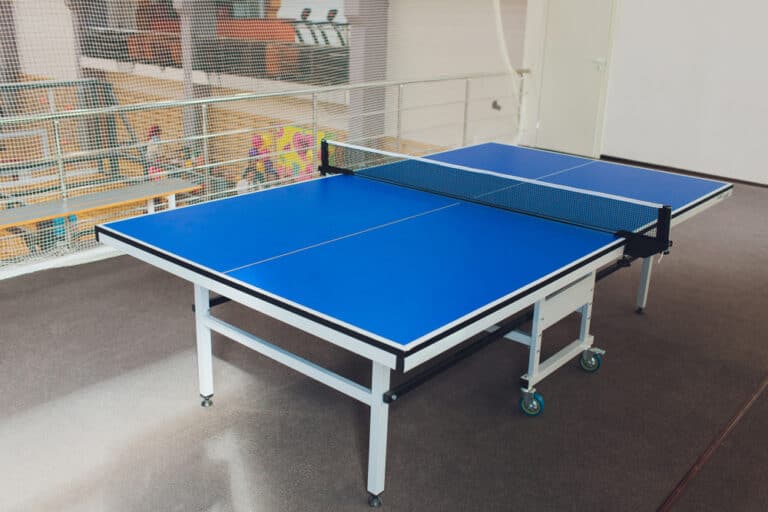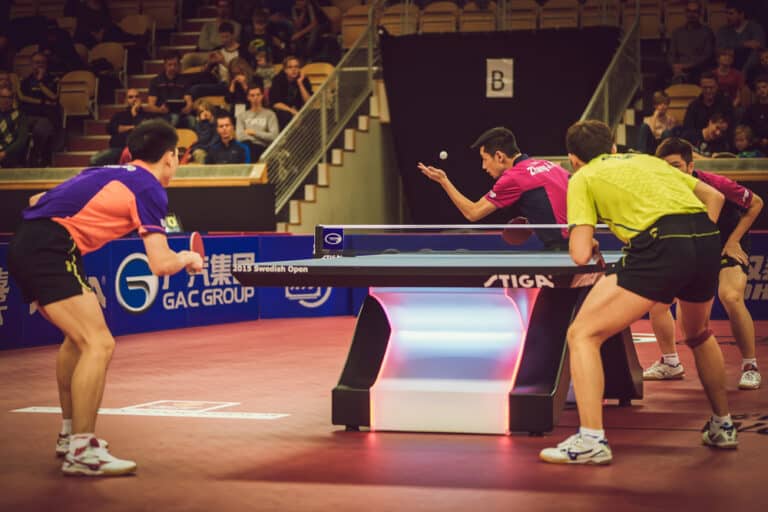Why Do Table Tennis Players Use Black On Forehand?
Getting that match point requires you to hit the ball right – but do you have to pay attention to the side you choose when you use your table tennis forehand? You do! You should use the black side, and there’s a good reason for that.
Table tennis players use black on forehand because the black rubber is tackier and helps the ball spin more when it hits the table. These trends changed over time: players preferred using red on forehand in the 80s. Beginners shouldn’t focus too much on colors until they are more experienced.
Although color preferences change over time, it’s important to understand the reasoning behind these choices to improve your table tennis game, such as when they first happened and what kind of rubber is used nowadays. Find out below.
Do All Table Tennis Players Use Black On Forehand?
Not at all! Whether you hit black on forehand or not is a personal choice. Chinese players prefer to play this way, but that doesn’t mean you have to do it. The way you hit the ball depends on your table tennis paddle and how you like to play the game.
If you’re merely starting to play table tennis, it’d be better to focus your efforts on how the game is played. Then, develop the right style for you. After that, you’ll have to figure out whether to hit black or red on forehand.
Whether you choose red or black isn’t set in stone. In fact, table tennis players used red on forehand back in the day. The black on forehand trend started a few decades ago.
When Did Table Tennis Players Start Using Black Rubber?
There are two moments in table tennis history when black rubber became a protagonist: in 1986, the ITTF required players to use a black and red color combination for their rackets. At the same time, players started using black on forehand sometime after the 90s.
The reason why the ITTF chose these two colors is simple: they needed an easy way to distinguish between players. At the same time, they wanted to add transparency to the game. By requiring players to use red and black, the opponent will know how fast the ball will approach them, making the game fairer.
As of 2020, the ITTF allowed players to choose a different color combination for their rackets – but the same trend and rationale behind the color combination rule still applies.
Why Do Table Tennis Players Use Red On Backhand?
Several players feel they can make the ball travel faster and spin less when hitting it with the red side of their paddle. This fact has nothing to do with colors but rubber instead: the type of rubber a paddle has may change the way a ball goes from one side to the other.
It’s important to note that these color choices carry a certain degree of superstition. Table tennis trends change through time, and when people notice top players using either color for different techniques, they’ll imitate these actions without giving it too much thought.
In fact, most manufacturers make an effort to make red and black rubber equal. Certain players, like Chinese ones, prefer to play with a tackier black rubber to help their forehand.
What Kind Of Rubber Is Used In Table Tennis?
You will usually find four types of table tennis rubber: antispin, inverted, short pips, and long pips. You may find countless variations of these four types and a few other rubber types.
Beginner players shouldn’t confuse manufacturer names with rubber types! Countless options may be very similar to each other. Because of that, it’s always a good idea to talk to a coach or a more experienced player to know what paddle to purchase.
At the same time, focusing too much time on rubber types or color combination is far from ideal for a beginner. In fact, using that time to improve your technique will be time better spent if you’re trying to become a good table tennis player.
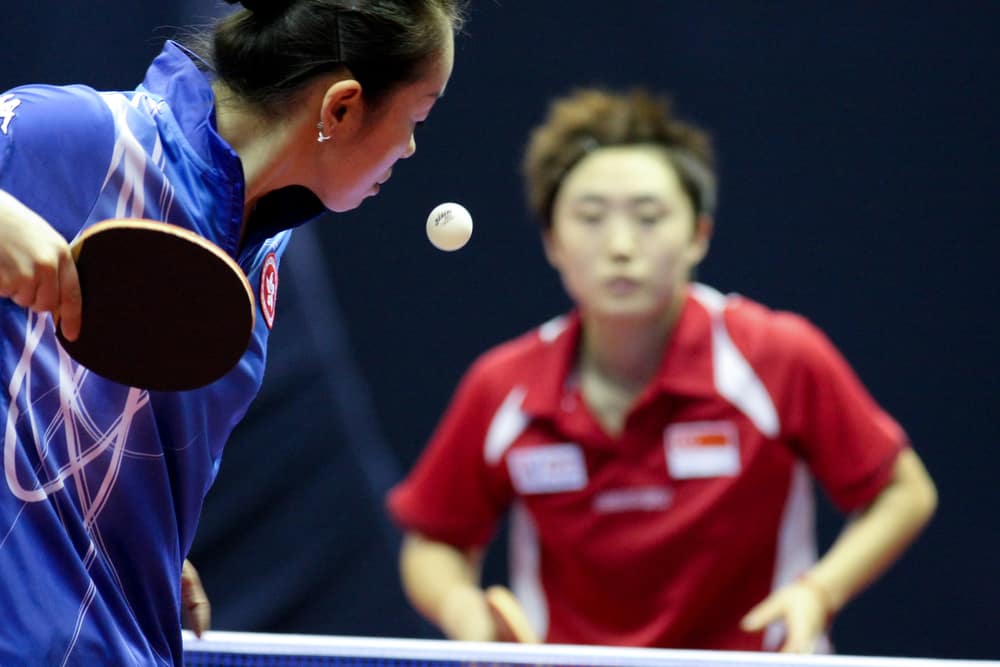
Which Is The Best Type Of Table Tennis Rubber?
No table tennis rubber is better than another – but one paddle will prove better for your playing style than others. Because of that, you’ll have to play with several paddles to figure out the best one for you.
Beginners should look for paddles made with inverted rubber. Truth be told, when starting out, any pre-made paddle will do.
As players improve their skill set, they will develop a preference for a specific type of playing, and at that point, they’ll be able to figure out what rubber works best for them. Choosing a kind of rubber over another early on could prove counterproductive: an inverted paddle will work best for most styles.
Which Rubber Colors Should Be Used In Table Tennis?
Players generally use the traditional red and black color combination, but as of late, the ITTF has allowed other options, including blue, green, pink, and purple. Paddles should be black on one side and any of the five available colors on the other.
In other words, you can combine black with blue, green, pink, purple, or red. Nevertheless, you can’t mix any of these last five colors with each other: paddles cannot be pink and purple, blue and red, or green and red – because one side should always be black.
The ITTF made black mandatory on all paddles to help colorblind players distinguish both sides. Having a pink and purple paddle would make it close to impossible for colorblind people to know which side is which.
Why Do We Need Two Rubber Colors In Table Tennis?
The ITTF enforced a two-color combination rule in 1986 to help players and spectators distinguish between both sides of the tennis table paddle. This rule makes the game fair for players and easy to follow for the viewer.
How does a different color combination make the game fairer for the player? Since table tennis players use different types of rubber on either side of their paddle, knowing how the ball will react to each kind of rubber helps your opponent get ready to hit it back.
It has little to do with colors and more with identifying different types of rubber by their color. Different players use different styles, and different styles require different types of rubber.
What’s The Difference Between Red And Black In Table Tennis?
Depending on the rubber you choose to use, hitting the ball with the red side will make it travel faster than you would when hitting with the black side. At the same time, hitting the ball with the black side will make it spin more.
Remember, the color has little to do with it! Manufacturers usually choose red for a distinct type of rubber, and the same happens with black.
For example, most players use black on forehand and red on backhand because Chinese players do that.
At the same time, Chinese players use custom-built paddles that suit their style. Their black side is tackier than the other, and that’s why they use black on forehand. Most of the time, other players imitate this trend without giving it much thought.
Conclusion
Players choose black on forehand because they believe the black side will make the ball spin more than it would otherwise. Nevertheless, that depends more on the type of rubber you choose than the color. Chinese table tennis players popularized this trend.

